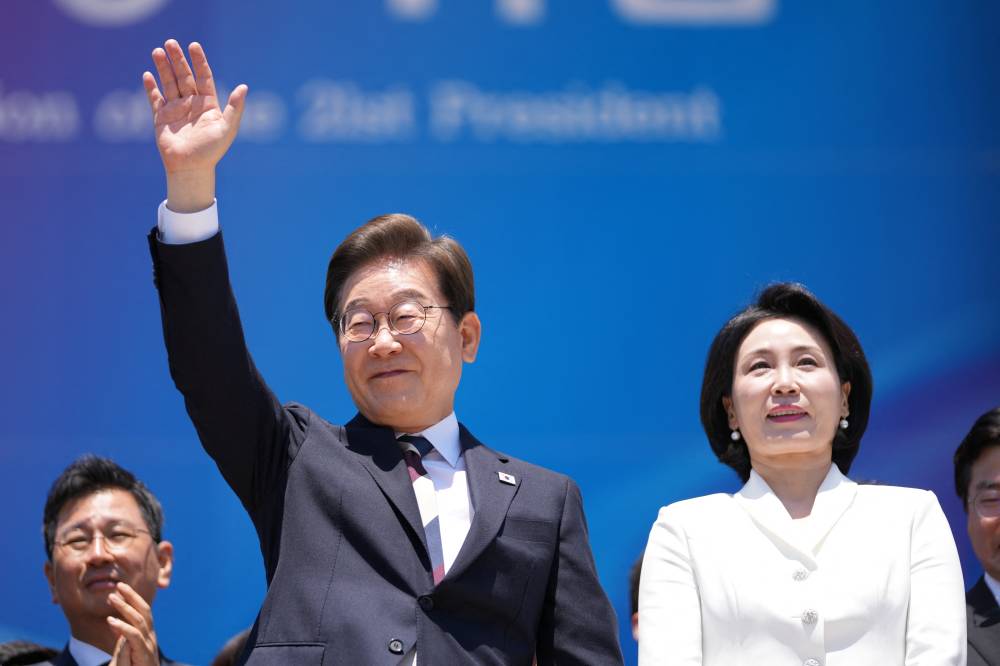S. Korea’s new president vows to revive democracy

SEOUL—South Korea’s new liberal President Lee Jae-myung pledged on Wednesday to raise the country from the near destruction caused by a martial law attempt and revive an economy besieged by global protectionism that is threatening its very existence.
Lee’s decisive victory in Tuesday’s snap election stands to usher in a sea change in Asia’s fourth-largest economy, after backlash against a botched attempt at military rule brought down Yoon Suk-yeol just three years into his troubled presidency.
He faces what could be the most daunting set of challenges for a South Korean leader in nearly three decades, ranging from healing a country deeply scarred by the martial law attempt to tackling unpredictable protectionist moves by the United States, a major trading partner and a security ally.
Reopen talks with N. Korea
“A Lee Jae-myung government will be a pragmatic promarket government,” he said after taking the oath of office at parliament, a location where six months ago he jumped over the perimeter wall to enter the chamber and avoid martial law troops barricading it to vote down the decree.
He promised deregulation to spur innovation and growth in business and pledged to reopen dialogue with North Korea while maintaining a strong security alliance with the United States and bringing balance to diplomacy.
“It is better to win without fighting than to win in a fight, and peace with no need to fight is the best security,” he said on the country’s often violent ties with rival North Korea.
Lee was officially confirmed earlier as president by the National Election Commission and immediately assumed the powers of the presidency and commander in chief, speaking with the top military leader to receive a report on defense posture.
49 percent of votes
With all the ballots counted, Lee won 49.42 percent of the nearly 35 million votes cast while conservative rival Kim Moon-soo took 41.15 percent in the polls that brought the highest turnout for a presidential election since 1997, official data showed.
Lee has said he would address urgent economic challenges facing the country on the first day in office with a focus on the cost-of-living concerns affecting middle- and low-income families and the struggles of small business owners.
He also faces a deadline set by the White House on negotiating import duties that Washington has blamed for a large trade imbalance between the countries.
South Korean stocks rallied on Wednesday morning, with the benchmark Kospi rising more than 2 percent to its highest in 10 months, with the financial sector leading the gain on expectations of market reform by Lee. Renewable energy stocks also rose. Lee has pledged a shift to a greener energy mix.
‘Deal with Trump’
The government under a caretaker acting president had made little progress in trying to assuage crushing tariffs announced by US President Donald Trump that would hit some of the country’s major industries, including autos and steel.
“President Lee will find himself with little to no time to spare before tackling the most important task of his early presidency: reaching a deal with Trump,” the Washington-based Center for Strategic and International Studies said.
The White House said the election of Lee was “free and fair” but the United States remained concerned and opposed to Chinese interference and influence in democracies around the world, according to a White House official.
Reuters, the news and media division of Thomson Reuters, is the world’s largest multimedia news provider, reaching billions of people worldwide every day. Reuters provides business, financial, national and international news to professionals via desktop terminals, the world's media organizations, industry events and directly to consumers.

















